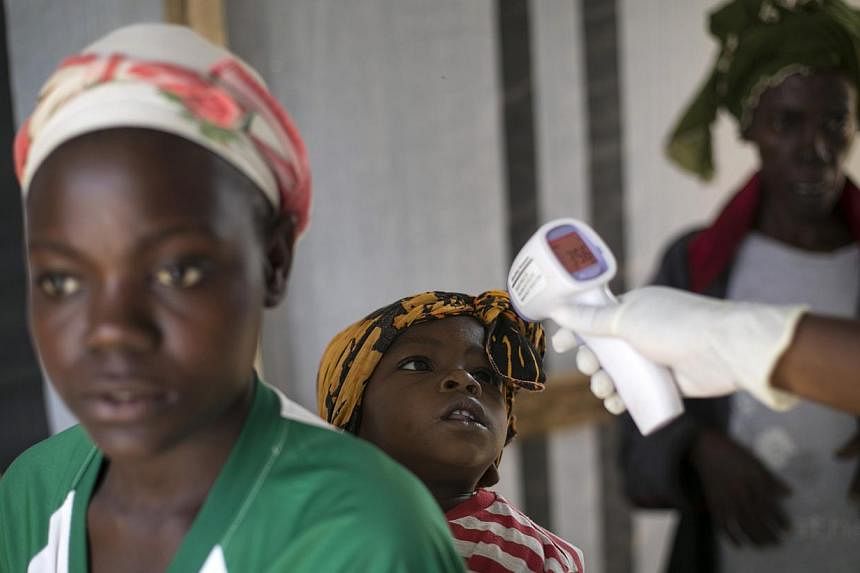FREETOWN (AFP) - Sierra Leone on Friday lifted crippling nationwide restrictions on movement put in place at the height of the Ebola crisis, amid signs that the deadly epidemic was retreating.
The nation of six million had restricted travel for around half its population, sealing off six of its 14 districts and numerous tribal chiefdoms in response to an outbreak which has killed more than 3,000 Sierra Leoneans.
"Restrictions on movement will be eased to support economic activity. As such, there will no longer be any district or chiefdom level restrictions on movement," President Ernest Bai Koroma said in an address to the nation late Thursday.
Mr Koroma pointed to a "steady downward trend" in new cases in recent weeks, adding that "victory is in sight" but cautioning against complacency.
The president said the travel bans would be removed from Friday and restrictions will be eased on Saturday trading hours in the hard-hit Western Area, which includes the capital Freetown.
The move marks huge progress in a crisis which has seen commerce all but grind to a halt, with travel restrictions hitting the rural communities particularly hard and sparking warnings of a looming food crisis.
Sierra Leone is targeting zero new cases by March 31 of the deadly tropical fever that has killed around 9,000 west Africans over the past year, according to official data, although the real toll is thought to be significantly higher.
The country announced on Thursday that it would end "risk payments" to healthcare workers dealing with Ebola by that date and reopen schools, with teaching expected to resume in the third week of March.
The World Health Organization said in its latest update that 8,626 people had died as of January 18, among a cumulative total of 21,689 cases.
Liberia, which had a peak of over 300 new cases a week in August and September, registered just eight last week, while there were only 20 confirmed cases in Guinea last week against 45 the week before.
The figure for Sierra Leone was 117 last week against 184 the week before, the WHO said, but added that the west of the country remained a problem area.
Koroma stressed however that the crisis would not be over until all three countries had seen no new cases for 42 days.
He vowed that anti-Ebola measures such as a ban on washing bodies of victims of the highly infectious virus would remain in place.
"Our records show that this is now the greatest threat to our victory over the disease," he said.
"Law enforcement agencies and chiefs are under instruction to ensure that the full force of the law is brought to bear on those who touch or wash dead bodies." He added that while victory over the epidemic was in sight, "we must not relent, we must continue to soldier on".
British pharmaceutical giant GlaxoSmithKline (GSK) said on Friday its candidate Ebola vaccine was expected to arrive in Liberia later in the day.
The batch of 300 vials will be the first to arrive in one of the main Ebola-hit countries and will be used in trials led by the US National Institutes of Health in the coming weeks involving up to 30,000 people.
Around 200 volunteers are already testing the candidate vaccine in smaller-scale trials Britain, the United States, Switzerland and Mali, with initial results showing it to be safe.

